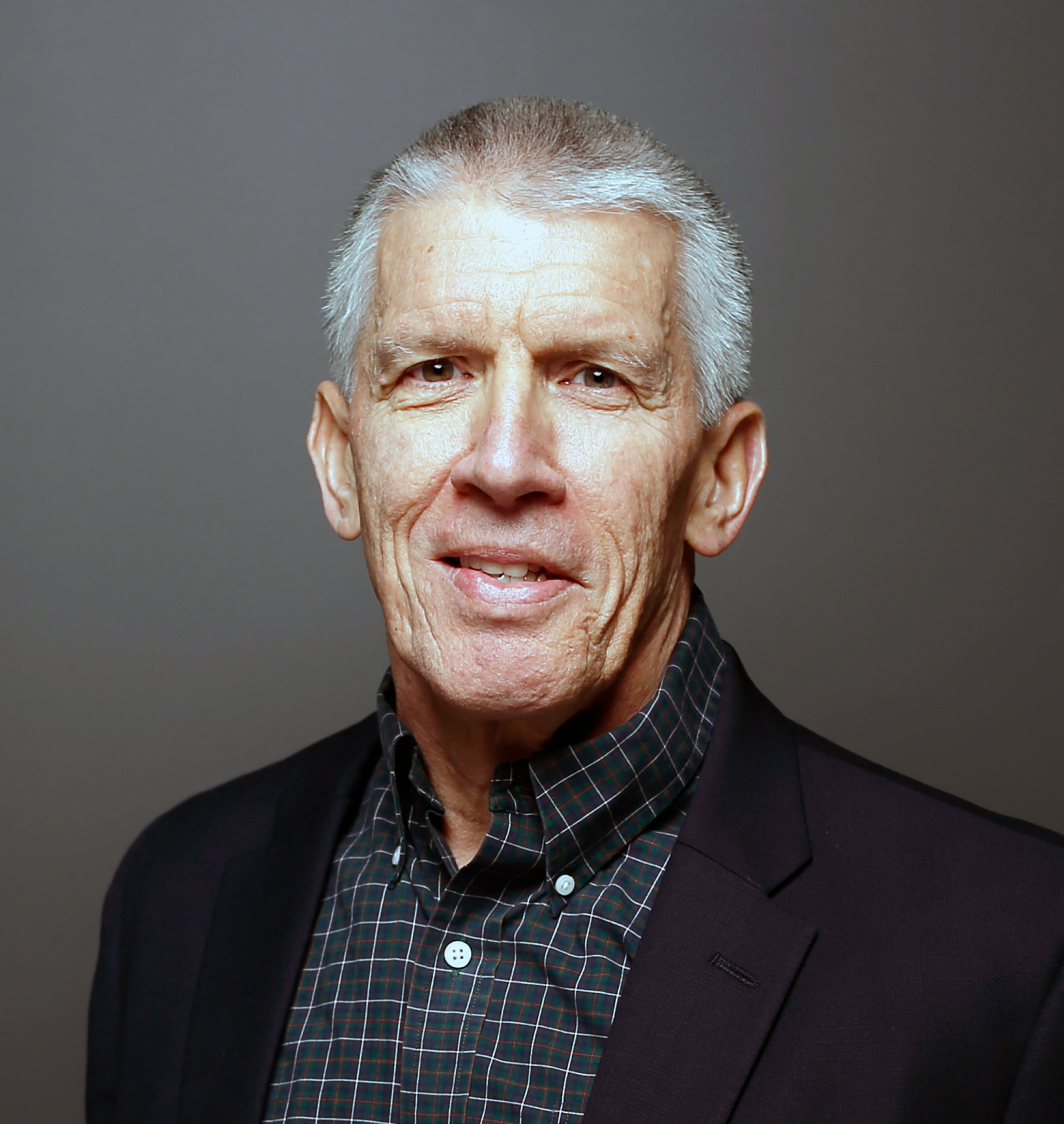
Title: Auditory Wellness: What is it? Why is it important? How can it be self-managed?
Biography:
Larry E. Humes earned his undergraduate degree from Purdue University and a Master’s degree from Central Michigan University, before completing his PhD at Northwestern University. He then spent 8 years on the faculty at Vanderbilt University before joining the faculty at Indiana University, where he remains today as Distinguished Professor Emeritus. He has published over 175 articles in peer-reviewed journals and another 60 non-peer-reviewed articles, reviews, chapters, and books. He has presented or been a co-presenter on over 380 presentations throughout the world.
Professor Humes has received the Honors of the Association and the Kawana Award for Lifetime Achievement in Publications from the American Speech-Language-Hearing Association, the Jerger Career Award for Research in Audiology from the American Academy of Audiology and presented the 2020 Carhart Memorial Lecture at the annual meeting of the American Auditory Society. He is a Fellow of the Acoustical Society of America and the International Collegium of Rehabilitative Audiology (ICRA).
Professor Humes’ areas of research include noise-induced hearing loss, psychoacoustic abilities of hearing-impaired listeners, innovations in hearing aid fitting, hearing difficulties of the elderly, measuring and modeling hearing-aid outcomes, the development and evaluation of hearing-aid self-fitting methods, and, most recently, the measurement of auditory wellness in older adults. This most recent work is the focus of his presentation.
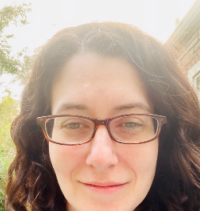
Title: Assessing and altering listening effort with an eye towards clinical tools
Biography:
Stefanie E. Kuchinsky, Ph.D. is a Research Investigator in the Audiology and Speech Pathology Center at Walter Reed National Military Medical Center, Bethesda, MD, USA. She holds faculty affiliations as a Research Associate Professor in the Department of Surgery at Uniformed Services University and as an Associate Research Scientist in the Department of Hearing and Speech Sciences at the University of Maryland. Her research examines how auditory, linguistic, and cognitive systems interact to support speech comprehension. She conducts behavioral, pupillometry, and neuroimaging studies that aim to assess and improve the functioning of these systems in a variety of listening conditions (e.g., speech in noise, vocoded speech) and for a variety of populations (e.g., older adults with and without hearing loss, service members and veterans with traumatic brain injuries, adult second-language learners).
.jpg)
Title: Successful listening can be based on a variety of cues - and some are more cognitively expensive and effortful than others
Biography:
I am a Senior Lecturer in Audiology and Hearing Sciences at the Manchester Centre for Audiology and Deafness, University of Manchester, UK. My research focusses on how different groups of listeners process speech – from the initial auditory signal to the final understanding of and response to the message. My work contributes to a more theory-guided understanding of the importance of auditory and cognitive processes for speech perception. I also work to translate this improved theoretical understanding of listening into clinical practice by: developing targeted diagnostics of key parameters of listening; training key parameters of listening; and developing effective outcome measures of Audiological interventions.
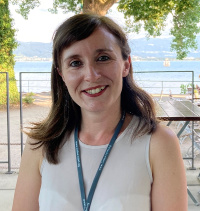
Title: Hearing in a social context: The impact of hearing loss on prediction and turn-taking
Biography:
Lauren completed her PhD in Psychology at the University of Edinburgh in 2016, addressing how people make predictions when playing music together in comparison to conversing together, and has since held postdocs focusing on communication strategies and cognitive control. In 2018 she moved to Hearing Sciences - Scottish Section, an outpost of the University of Nottingham, to study conversation behaviour. She currently holds a prestigious UKRI Future Leaders Fellowship, in which she is investigating how hearing loss affects neurocognitive mechanisms underlying interaction, in order to find new ways to support people with hearing impairment.
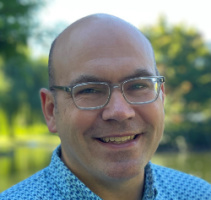
Title: Using optical brain imaging to understand how the brain understands spoken language
Biography:
Jonathan Peelle is an Associate Professor in the Center for Cognitive and Brain Health at Northeastern University, with appointments in the Department of Communication Sciences and Disorders and Psychology. He obtained his PhD in neuroscience from Brandeis University, and went on for postdoctoral training in cognitive neuroscience and neuroimaging in the Department of Neurology at the University of Pennsylvania and at the MRC Cognition and Brain Sciences Unit in Cambridge, England.
Dr. Peelle's research investigates the neuroscience of human communication, aging, and hearing using a combination of behavioral and brain imaging methods. His work unravels how it is that humans can understand a complex acoustic signal like speech, and how our brains adjust when there are acoustic challenges like background noise or hearing loss. Because of the central role of spoken language in our everyday lives, understanding contributors to communication success—and how these might be modified—has implications for social, mental, and physical well-being.
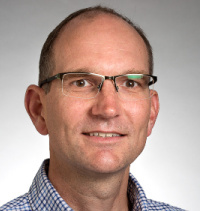
Title: Ear-Centered Sensing's Potential in Advancing Hearing
Biography:
Preben Kidmose received his M.Sc. degree in Engineering in 1998, and the Ph.D. degree in 2002 from Technical University of Denmark. He is currently Professor in Biomedical Engineering at the Department of Electrical and Computer Engineering at Aarhus University. Preben is a pioneer of the ear-EEG recording method, and he is head of the Center for Ear-EEG at Department of Electrical and Computer Engineering. He has (co-)authored >70 peer reviewed journal and conference papers.
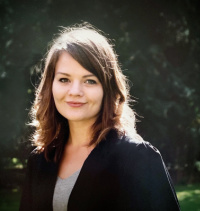
Alexis started her research career as an assistant in the Music and Neuroscience Lab at Western University (Ontario, Canada) before moving to Cambridge University's Centre for Music and Science, where she studied for her MPhil funded by the Cambridge Trust Canada Scholarship. Alexis then went to London for her PhD in cognitive neuroscience at University College London fully supported by the GRS-ORS scholarships (now UCL Research Excellence Scholarship). She is currently based at the MRC Cognition and Brain Sciences Unit, where she is a member of Cambridge Hearing Group and the Hearing and Language Group as a Leverhulme Trust Early Career Fellow.
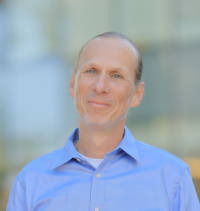
Boaz M. Ben-David
Boaz M. Ben-David, Ph.D. is an associate professor of psychology at Reichman University where he is the director of the Communication, Aging, and Neuropsychology Laboratory (CANlab). Additionally, he holds adjunct faculty positions at the University of Toronto (Department of Speech-Language Pathology) and the Toronto Rehabilitation Institute (KITE). Among his research interests are: A. the premise that reductions in the quality of sensory input in older age adversely affect cognitive functioning, specifically speech processing. B. Developing better and more valid methods of testing cognition and performance across the life span. C. Speech perception in adverse conditions. D. The complex interplay that governs emotion perception in speech, across different populations. E. A multidisciplinary approach to aging: examining social, emotional, cognitive, personality, and other factors to better understand aging and develop strategies to promote wellbeing as we age. F. Reactions to trauma across the life-span. Recently, he co-founded the non-profit organization "Primary Emotional Support", which provides free onsite mental health support during times of national and political distress.
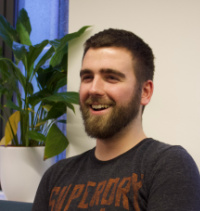
Brandon O'Hanlon
Brandon O’Hanlon is a third-year PhD student from Lancaster University, UK, who is exceptionally passionate about hearing and speech perception from a cognitive neuroscience perspective. Supervised by Dr Helen Nuttall and Prof Christopher Plack, Brandon has worked with the Neuroscience of Speech and Action laboratory throughout his undergraduate and postgraduate research career. His current research delves into how sensory information from vision and touch can be integrated with hearing to enhance neural tracking in the auditory cortex and to improve speech perception in difficult listening conditions, using methodologies such as invasive and scalp EEG.
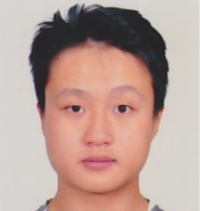
Brian Kai Loong Man
Title: Audiovisual Listening Effort - how congruent visual cues may impact the allocation of effort during speech perception
Brian Kai Loong Man is a Ph.D. student from Compute, Technical University of Denmark. He is also affiliated with Eriksholm Research Centre and Oticon A/S. His research focuses on how cognitive effort is influenced by congruent visual cues, and whether current measures of listening effort in unimodal speech literature are also reflected in multisensory speech using EEG and pupillometry.
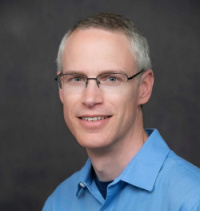
Daniel Fogerty
Daniel Fogerty is currently an Associate Professor of Speech and Hearing Science at the University of Illinois Urbana-Champaign. He completed his PhD in Speech and Hearing Science and Cognitive Science followed by postdoctoral training at Indiana University. His research activities have been focused on the auditory and cognitive processes that support speech perception under adverse listening conditions as well as age-related changes in speech recognition.
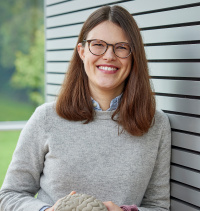
Florine Bachmann
Hi, my name is Florine Bachmann, I am a scientist at Eriksholm Research Centre, part of Oticon. I hold an MSc in Psychology from the University of Zurich, a PhD from the Technical University of Denmark, and have previously investigated e.g. comorbidities to hearing loss. My current research delves into the neural encoding of speech features along subcortical and cortical stages of the auditory pathway, focusing on changes associated with hearing loss and hearing rehabilitation. I am particularly intrigued by the potential of emerging computational methods in auditory cognitive neuroscience and their application in developing future smart hearing devices. Please don’t hesitate to reach out under flln@eriksholm.com / on LinkedIn / ResearchGate if you are interested in our work!
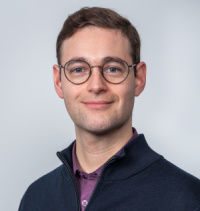
Frédéric Marmel
Frédéric Marmel is a Senior Scientist at ORCA Europe (WS Audiology, Stockholm, Sweden). Frédéric’s original background is in Cognitive Sciences: he started his scientific career investigating the auditory processing of musical structures, first for his PhD (University of Lyon, France, 2008) and then as a postdoctoral researcher (Northwestern University, IL, USA). He then moved on to basic and translational Hearing Sciences: between 2009 and 2018, he completed a series of postdoctoral research projects investigating auditory temporal processing and cochlear synaptopathy (University of Manchester, UK, and University of Salamanca, Spain). In 2019, Frédéric expanded his research and took his expertise in auditory perception and cognition out of the lab, by studying how sonic booms from a new generation of supersonic aircrafts would impact people in their homes (Sorbonne University, France, 2019-2021). Frédéric joined ORCA Europe in September 2021 as a scientist in Stockholm, Sweden. His main research areas of interest are prosody perception, group conversations, outcome measures for hearing aid benefits, and health benefits of hearing rehabilitation beyond hearing.
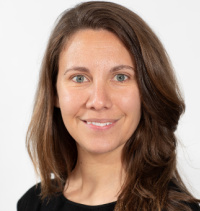
Isabelle Boisvert
Isabelle Boisvert is a Senior Lecturer with the Faculty of Medicine and Health at the University of Sydney, and a member of the Centre for Disability Research and Policy (Australia). She obtained her Master's degree in Clinical Audiology at the University of Montreal (Canada; 2004) and her PhD on cochlear implant outcomes at Macquarie University (Australia; 2013). This was in collaboration with the Linnaeus Centre HEAD (Sweden). She is also an Honorary Senior Research Fellow at Macquarie University.
Isabelle’s research focuses on the information and services available for people with hearing loss. She takes a pragmatic approach to communication, which typically integrates a flexible range of adaptations and technologies. She has published on clinical decision making, comparisons of intervention options, as well as physiological and patient-reported measures of listening effort and communication. Her recent studies highlight multidisciplinary opportunities and challenges prompted by hearing technology innovations.
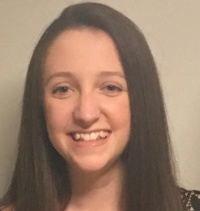
Jessica Pepper
Jessica Pepper is a third-year PhD student from the Department of Psychology at Lancaster University. Supervised by Dr Helen Nuttall in the Neuroscience of Speech and Action laboratory, Jessica's research focuses on investigating how the perceptual and cognitive mechanisms of multisensory integration change as a function of healthy ageing. Specifically, she uses EEG and TMS to study how younger and older adults process visual and auditory information, how this is reflected in neural oscillations, and the resulting impact on everyday tasks such as speech perception and fall risk.
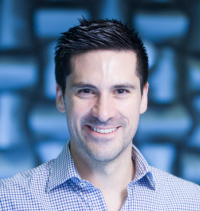
Joaquín T. Valderrama-Valenzuela
Title: Reducing listening effort in a realistic sound environment using directional microphones: Insights from behavioural, neurophysiological and self-reported data
Dr Valderrama earned his PhD from the University of Granada in 2014. He then moved to Sydney (Australia) to join the National Acoustic Laboratories (NAL), where he led various projects related to hearing neuroscience, listening effort, and cognition. Since January 2023, Dr Valderrama has been affiliated with the University of Granada in southern Spain, where he holds a prestigious ‘Ramón y Cajal’ fellowship at the Department of Signal Theory, Telematics and Communication. Additionally, he holds an honorary position at Macquarie University (Sydney, Australia), and serves as a Council Member of the ‘International Evoked Response Audiometry Study Group’ (IERASG), a scientific society dedicated to fostering discussions about physiologic signals generated within the auditory system. His research interests include the search for biomarkers sensitive to early signs of hearing impairment, individual measures of listening effort and selective attention, and the development of signal-processing algorithms for recording auditory evoked potentials in flexible conditions.
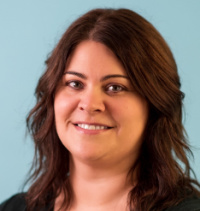
Kate McClannahan
Kate McClannahan is an Assistant Professor of Otolaryngology and the Director of Undergraduate Studies in the Program in Audiology and Communication Sciences at Washington University School of Medicine in St. Louis. She received her Au.D. and Ph.D. degrees from the University of Washington in Seattle and completed postdoctoral training in cognitive aging in the Department of Psychological and Brain Sciences at Washington University in St. Louis. Dr. McClannahan studies age-related hearing loss and cognitive aging, and how they interact. The work in her Auditory Wellness Laboratory centers around how psychological and mental health factors contribute to self-reported hearing difficulties and hearing loss treatment decisions in older adults. Her work also addresses the need to improve the identification, assessment, and treatment of hearing loss and communication difficulties in adults with dementia.
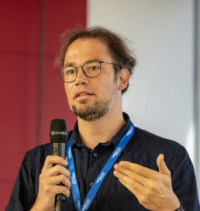
Lars Hausfeld
Lars Hausfeld is an Assistant professor at Maastricht University in the Faculty of Psychology and Neuroscience, member of the Auditory Perception and Cognition group and PI for “Cortical Correlates of Listening to Naturalistic Sounds”. He received his PhD on neural coding of voice identity using EEG and MRI machine learning techniques in 2014. In his research, he works on auditory selective attention to better understand the underlying neural networks and mechanisms with a focus on presenting more realistic listening scenarios. To achieve this, he analyses the processing of continuous sounds and events as measured with EEG and high-field MRI data. Mainly within the selective attention framework, he investigates speech and music perception, listening effort, audio-tactile stimulation, and, recently, reverberation. Other projects include the development of a VR-based attention network test and the application of fast-acquisition fMRI sequences in auditory neuroscience.

Louise Van Goylen
I am Louise Van Goylen, a 25-year-old PhD student at Ghent University, Belgium – department of Rehabilitation Sciences – and fully immersed in my doctoral research journey under supervision of Prof. Dr. Keppler and Dr. Kestens. My project, entitled Co-HIL (Cognition in Hearing-Impaired Listeners), is an exploration into the auditory-cognitive influences on speech understanding across diverse populations, encompassing individuals with normal hearing, those experiencing hearing loss, and hearing aid users.
As I am currently exploring the cognitive influence on hearing aid benefit, using a comprehensive auditory-cognitive test protocol, you will often find me within the audiological test cabin.
I am intrigued by this topic because it also holds the potential to add value to clinical settings.
Eager to embrace new challenges and broaden my intellectual horizons, I am anticipating an upcoming research stay at the University of Southern Denmark in September. There, I look forward to engaging with fellow experts, exchanging knowledge, and further refining my research. Beyond academia, I find fulfillment in creative expression and social engagement, recognizing the value of a balanced and multifaceted lifestyle. If you are interested in future outcomes of my research, feel free to reach out to me on LinkedIn or via email at louise.vangoylen@ugent.be.
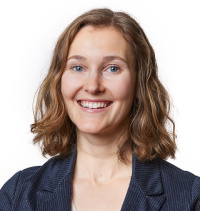
Martha Shiell
Martha is a Senior Scientist at Eriksholm Research Centre, a part of Oticon, one of the world’s leading hearing aid companies. Before coming to Eriksholm in 2019, Martha investigated auditory spatial processing via neuroimaging. She has continued this work in her current role and has also expanded into understanding the role of hearing loss in communication. Martha completed her Ph.D. in 2015 at McGill University, Canada, where she worked at the Montreal Neurological Institute with Robert Zatorre. Subsequently she completed postdoctoral research at the Maastricht Brain Imaging Centre in the Netherlands for four years. Martha has held awards from the Canadian Institute of Health Research, the Fonds de Recherche Sante Quebec, and was also the winner of a Canada Vanier Graduate Scholarship.
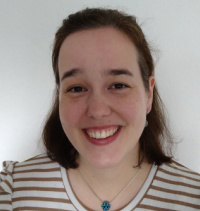
Michaela Socher
Michaela Socher is a research assistant in the research group Psychoacoustics and Cognitive Ergonomics at the Fraunhofer Institute for Building Physics. She obtain her Master’s degree in Cognitive Science at the University of Tübingen, Germany and her Ph.D in Disability Research at Linköping University. In her Ph.D. work she focused on language and cognitive development of children with cochlear implants. Currently her work is mainly focused on the influence of background noise on cognition and well being in both adults and children. She also studies which psychoacoustic parameters influence sound perception and how noise annoyance can be measured and interpreted.
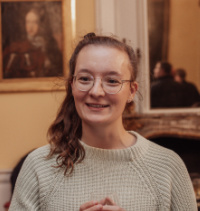
Mira Van Wilderode
In October 2019, Mira started her Ph.D. at the research group Experimental Oto-Rhino-Laryngology (ExpORL) at the Department of Neuroscience at the KU Leuven, under the supervision of Prof. Dr. Astrid van Wieringen and Prof. Dr. Ralf Krampe. She is currently wrapping up her PhD. Her research focuses on the cognitive aspects involved in listening, how they can be ameliorated, and how our listening abilities affect our daily lives.
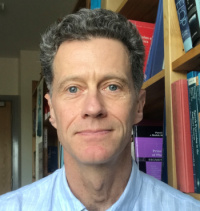
Sven Mattys
Sven Mattys is professor of psychology at the University of York, UK. He obtained his PhD from the State University of New York at Stony Brook and did postdoctoral research at Johns Hopkins University in Baltimore and at the House Ear Institute in Los Angeles. He then moved to the University of Bristol, UK, where he lectured from 2001 to 2012 before moving to the University of York. His research focuses on the perceptual and cognitive mechanisms involved in recognizing speech, with a special interest in everyday listening conditions, such as noise and divided attention. His research is currently funded by the ESRC (Split listening: A cognitive investigation of speech perception in adverse conditions).
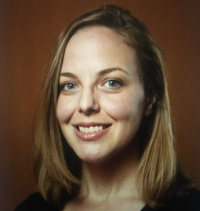
Terrin N. Tamati
Terrin N. Tamati is a Research Assistant Professor in the Department of Otolaryngology at Vanderbilt University Medical Center. She holds a Ph.D. in Linguistics from Indiana University and completed a postdoctoral fellowship at the University Medical Center Groningen. Dr. Tamati's research focuses on focuses on the study of speech perception in challenging real-world environments, particularly for adults with cochlear implants. She studies the linguistic, cognitive, and perceptual skills required for listeners to understand speech in such environments.
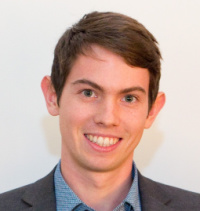
Tobias Dorszewski
Tobias Dorszewski received his MSc in Biomedical Engineering from the University of Stuttgart in 2023, specializing in electrophysiology and machine learning, while contributing to three research publications. In June 2023, he started his PhD at the Centre for Auditory Neuroscience at the Hearing Systems Section of the Technical University of Denmark. His research revolves around exploring complex communication scenarios using various sensors and machine learning techniques. A particular focus lies in the application of egocentric video and computer vision for identifying conversation partners in situations with multiple simultaneous conversations.
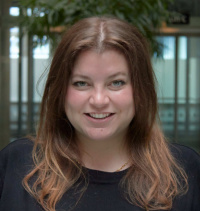
Title: Using a multisensory immersive environment to investigate allocation of sensory- and cognitive processing resources in older individuals
I completed my bachelor's and master's degree at the University of Zurich in the field of psychology with a focus on cognitive neuroscience. As part of my master's thesis, I investigated bodily and neural plasticity in the form of embodiment and which socio-cognitive attitudes are associated with altered bodily states and whether they can be influenced by them. I mainly worked with virtual body illusions and electroencephalography. Since June 2021, I have been a PhD student in the Computational Neuroscience of Speech & Hearing group at the Department of Computational Linguistics.
My research currently focuses on the relationship between hearing sensitivity and cognitive capacity in the context of natural speech processing. My goal is to better understand contributing factors to successful comprehension of spoken language, and particularly the underlying dynamic between neural correlates of speech perception. Specifically, I am investigating whether natural and realistic immersion of audio-cognitive training supports neural, as well as subjectively experienced, speech processing in older adults with hearing impairment, and whether there is evidence of transfer to everyday life. It is particularly important to me that my work goes beyond fundamental research and potentially promotes applications in everyday life in the future (e.g., training games, mobile apps, etc.).
.PNG)
Yue Zhang
Yue Zhang is a Senior Scientist in the Cochlear Research & Technology department. She holds a PhD in Speech, Hearing, and Phonetic Sciences from University College London and completed a postdoctoral fellowship at McGill University. Her research interests focus on understanding listening effort and fatigue in cochlear implant users, both in clinical settings and everyday life. In her current position at Cochlear, she is dedicated to translating scientific knowledge into innovative solutions for product development and clinical practice.